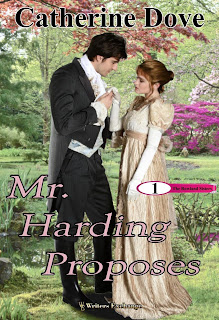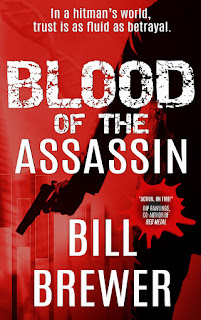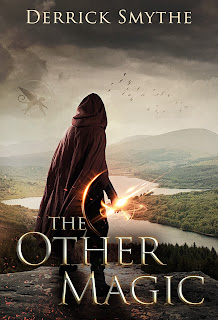New Book Alert: Blood of the Assassin by Bill Brewer; Exciting Page Turner Equals Great Antidote For Staying At Home
By Julie Sara Porter
Bookworm Reviews
Spoilers: One way to entertain yourself while staying at home during the Coronavirus pandemic is to immerse yourself into an exciting action packed page turner. You are caught up in the vicarious suspense of spies, detectives, dastardly villains, cat and mouse chases, unsolved puzzles, and thrilling climaxes. For several hundred pages, this world of pandemics, hate crimes, political unrest, income inequality, climate change, and unsolvable problems disappears into a world which is difficult but at least solvable, if not by the end of the first book then by the end of the trilogy.
A perfect example of a good exciting book to turn to during these tough times is Bill Brewer's Blood of the Assassin. The Reader gets swept into the suspenseful world of David Diegert, professional hitman, that they can forget that the word "Coronavirus" even exists.
David is an assassin under the employ of Crepesculous, a secret organization headed by the "one percent of the one percent." However, he is not exactly happy at the prospect. He doesn't know who the big shots are that pull the strings. Not to mention that they have a nasty habit of threatening family members if employees go against their regulations such as David and his new partner, Fatima who are forced to their dirty work when Crepesculous's goons kidnap David's mother and Fatima's son. When David's informant is murdered after discovering the identity of Crepesculous's fearless leaders, David finds himself working for and against these very powerful and very dangerous men.
This is the type of book that is full of suspenseful moments. Most of the tension lies in the double cross and agendas that characters hide. David discovers Crepesculous's three-part plan for world domination and is framed for a presidential assasination. It's that kind of book where stakes are set so unbelievably high that it's almost entertaining. There are also some pretty intense moments when David does some illegal things to meet his goals suggesting that he is more like his employers than he is willing to admit.
Thankfully, the characters are as well-written as the suspense, otherwise the book wouldn't be near as captivating. We peer into David's dysfunctional family in Minnesota including his drug dealer father, his toady of a half-brother, and his beloved mother who David admits was the one bright spot in his life. Even though David lives a life of danger and mistrust, it's clear that he prefers the tense life that he lives now to the one he left behind.
Fatima also has her issues as well. In fact, most of the cast lives pretty screwed up lives suggesting that this spy/assassin/conspiracy career path is a natural choice for troubled unbalanced individuals that had troubled dysfunctional relationships. (Makes you sleep better knowing that they stand between us and world destruction and domination, doesn't it?) In Fatima's case, her relationships with her son and the boy's father take precedence. Her son is special needs and she protects him with all of the fierceness of a mother bear. She has some tender moments with the father of her child, a Crepesculous operative who lived a privileged lifestyle of money, luxury, and women. Recently, he has taken a more serious look at his life and is prepared to redeem himself in the eyes of his former lover and biological son.
Brewer also captures the antagonists well, particularly and surprisingly, the four main heads of Crepesculous. This is contrasted to the shadowy government conspiracy in other novels, for example Taylor Caldwell's Captains and the Kings. Many of these books portray the shadowy conspiracy figures as one-dimensional interchangeable static characters, no past and no motivation except to keep their organization in charge. They are treated like automotons or forces of nature rather than actual characters.
Blood of the Assassin subverts those portrayals by revealing who these men are when they aren't engaged in starting wars and arranging assasinations for fun and profit. Like the protagonists, they too have troubled home lives. In an almost Aesop like manner in proving that money can't always buy happiness, the Crepesculous leaders are all revealed to have troubled relationships with their spouses and children. Some are permanently estranged from them. Others have to helplessly watch as their children party, become drug addicts, career criminals, or live the life of over privileged celebutantes. Others use their children as philanthropic or entrepreneuel fronts for their nefarious deeds knowing full well that their relationship with these kids would shatter beyond repair should they find out what their dads are really doing. It's a sad commentary that these men have built this tremendous empire and not one would even think of appointing one of their children to inherit it. These kids are too dumb, too honest, or too separated from their fathers to do so. The only thing that the Crepesculous men are willing to do is take what they can as much as they can for themselves.
Blood of the Assassin is the right antidote for these troubled times. It keeps the Reader on the edge of their seat with tight suspense and gives rich characters, both protagonists and antagonists to experience it. Above all, it provides something that we long for in periods of uncertainty: a real resolution and ending.
New Book Alert: Blood of the Assassin by Bill Brewer; Exciting Page Turner Equals Great Antidote For Staying At Home
By Julie Sara Porter
Bookworm Reviews
Spoilers: One way to entertain yourself while staying at home during the Coronavirus pandemic is to immerse yourself into an exciting action packed page turner. You are caught up in the vicarious suspense of spies, detectives, dastardly villains, cat and mouse chases, unsolved puzzles, and thrilling climaxes. For several hundred pages, this world of pandemics, hate crimes, political unrest, income inequality, climate change, and unsolvable problems disappears into a world which is difficult but at least solvable, if not by the end of the first book then by the end of the trilogy.
A perfect example of a good exciting book to turn to during these tough times is Bill Brewer's Blood of the Assassin. The Reader gets swept into the suspenseful world of David Diegert, professional hitman, that they can forget that the word "Coronavirus" even exists.
David is an assassin under the employ of Crepesculous, a secret organization headed by the "one percent of the one percent." However, he is not exactly happy at the prospect. He doesn't know who the big shots are that pull the strings. Not to mention that they have a nasty habit of threatening family members if employees go against their regulations such as David and his new partner, Fatima who are forced to their dirty work when Crepesculous's goons kidnap David's mother and Fatima's son. When David's informant is murdered after discovering the identity of Crepesculous's fearless leaders, David finds himself working for and against these very powerful and very dangerous men.
This is the type of book that is full of suspenseful moments. Most of the tension lies in the double cross and agendas that characters hide. David discovers Crepesculous's three-part plan for world domination and is framed for a presidential assasination. It's that kind of book where stakes are set so unbelievably high that it's almost entertaining. There are also some pretty intense moments when David does some illegal things to meet his goals suggesting that he is more like his employers than he is willing to admit.
Thankfully, the characters are as well-written as the suspense, otherwise the book wouldn't be near as captivating. We peer into David's dysfunctional family in Minnesota including his drug dealer father, his toady of a half-brother, and his beloved mother who David admits was the one bright spot in his life. Even though David lives a life of danger and mistrust, it's clear that he prefers the tense life that he lives now to the one he left behind.
Fatima also has her issues as well. In fact, most of the cast lives pretty screwed up lives suggesting that this spy/assassin/conspiracy career path is a natural choice for troubled unbalanced individuals that had troubled dysfunctional relationships. (Makes you sleep better knowing that they stand between us and world destruction and domination, doesn't it?) In Fatima's case, her relationships with her son and the boy's father take precedence. Her son is special needs and she protects him with all of the fierceness of a mother bear. She has some tender moments with the father of her child, a Crepesculous operative who lived a privileged lifestyle of money, luxury, and women. Recently, he has taken a more serious look at his life and is prepared to redeem himself in the eyes of his former lover and biological son.
Brewer also captures the antagonists well, particularly and surprisingly, the four main heads of Crepesculous. This is contrasted to the shadowy government conspiracy in other novels, for example Taylor Caldwell's Captains and the Kings. Many of these books portray the shadowy conspiracy figures as one-dimensional interchangeable static characters, no past and no motivation except to keep their organization in charge. They are treated like automotons or forces of nature rather than actual characters.
Blood of the Assassin subverts those portrayals by revealing who these men are when they aren't engaged in starting wars and arranging assasinations for fun and profit. Like the protagonists, they too have troubled home lives. In an almost Aesop like manner in proving that money can't always buy happiness, the Crepesculous leaders are all revealed to have troubled relationships with their spouses and children. Some are permanently estranged from them. Others have to helplessly watch as their children party, become drug addicts, career criminals, or live the life of over privileged celebutantes. Others use their children as philanthropic or entrepreneuel fronts for their nefarious deeds knowing full well that their relationship with these kids would shatter beyond repair should they find out what their dads are really doing. It's a sad commentary that these men have built this tremendous empire and not one would even think of appointing one of their children to inherit it. These kids are too dumb, too honest, or too separated from their fathers to do so. The only thing that the Crepesculous men are willing to do is take what they can as much as they can for themselves.
Blood of the Assassin is the right antidote for these troubled times. It keeps the Reader on the edge of their seat with tight suspense and gives rich characters, both protagonists and antagonists to experience it. Above all, it provides something that we long for in periods of uncertainty: a real resolution and ending.








